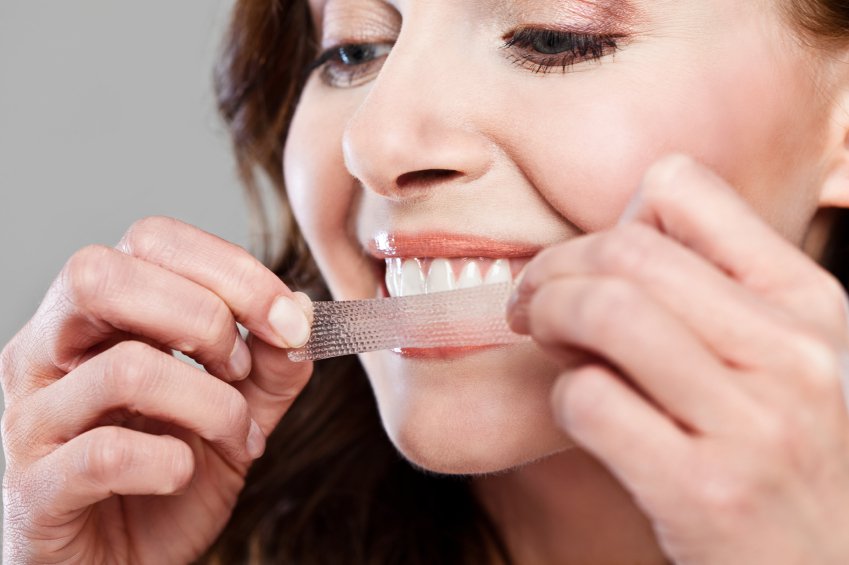Home vs. Professional Dental Services: What is Right for You?
You already know that it’s essential to keep your teeth clean, strong, and sparkly white, but do you know the best way to approach any of these techniques? Learn about some of the most popular dental procedures and discover the differences between using at-home products and visiting a professional dentist.

Teeth Cleaning
Cleaning your teeth is essential to keeping them healthy and functional. When done correctly, teeth cleaning removes potentially damaging food and plaque from the surface of your teeth, prevents the enamel on your teeth from eroding, and helps avoid cavities and other serious dental issues. At-home cleaning and professional cleaning will keep your teeth the healthiest.
At-Home Teeth Cleaning Products
-
Toothbrushes and Toothpastes: A healthy teeth cleaning routine starts with regular brushing at home, using an over-the-counter toothpaste approved by the American Dental Association (ADA). Dentists generally recommend brushing your teeth for at least two minutes at least twice a day to remove food and plaque adequately. You can also brush immediately after eating or drinking anything acidic to give your teeth an extra protective boost. Be sure to clean the outer, inner, and chewing surfaces of your teeth equally and brush your tongue for fresher breath. Toothbrushes and toothpaste cost less than $5.
-
Dental Floss: Dentists also recommend flossing your teeth at least once a day to remove food, plaque, and tartar that you can’t reach with a toothbrush. Simply take an 18- to 24-inch piece of clean floss and slide it between each tooth, one by one. This necessary step can prevent gum disease and tooth decay, generally taking under five minutes per day to complete. Dental floss costs less than $5.
Professional Teeth Cleaning Services
Professional cleaning is another necessary part of keeping your teeth healthy. Most experts recommend that you find a dentist and schedule a checkup and cleaning every six months for optimal oral health. This process generally includes a thorough cleaning, advice on how to keep your teeth healthy at home, a complete dental examination, and X-rays to check for larger problems.
A professional cleaning typically costs $100 in out-of-pocket expenses, but a dental savings plan can significantly cut that cost.
Teeth Whitening
Enamel, the hard shell that covers your teeth, isn’t the primary element determining the color of your teeth. It’s actually the dentin, or the main part of the tooth, that establishes whether your teeth appear bright white, off-white, gray, or yellow. Since enamel is the part that shows the signs of stains from coffee, soda, red wine, and other beverages, however, enamel does have a say in how bright, dull, or stained your teeth appear.
Discolored teeth aren’t necessarily a health risk, but serious cases can make you seem unhealthy or older than you really are. To make sure your teeth project your authentic self, learn more about the whitening products available as over-the-counter products and the services your dentist can offer.
At-Home Teeth Whitening Products
-
Whitening Toothpaste: The easiest and least invasive whitening product, whitening toothpaste can help remove minor stains and brighten your teeth slightly. Using whitening toothpaste for an extended period can keep already healthy teeth looking good. At an average of $5 per tube, it’s an affordable solution.
-
Whitening Rinses: These products work like a mouthwash, which means the whitening solution only contacts your teeth briefly. Like whitening toothpaste, whitening mouthwash can offer gradual brightening over time. This product costs about $5 per bottle.
-
Whitening Strips: This process involves applying a gentle bleach solution directly to your teeth with whitening strips. Most products require you to apply the strips for two hours daily, and for anywhere from 10 to 20 days, to allow the solution to work. Most consumers are moderately happy with the results they see from whitening strips, which typically cost $15 for a box.
-
Whitening Trays: These products require you to fill a set of trays with a whitening solution, which you then wear over your teeth for anywhere from two hours to overnight. Depending on the level of the discoloration, you may need several sessions to achieve the desired result. Although many consumers are happy with their whiter teeth, some report tooth sensitivity after using at-home whitening trays. These products generally cost about $35 per box.
Professional Teeth Whitening Services
-
Professional Whitening: When at-home whitening procedures aren’t effective enough, your dentist can walk you through a professional whitening procedure. This normally involves your dentist shaping custom trays, filling them with a bleach solution, and then fitting them over your teeth. Some dentists use a light source to amplify the whitening effect. Depending on your teeth's condition, you may need to undergo several short whitening sessions over time. The average cost for professional whitening is about $400, and more than half of patients consider the professional whitening to be a worthwhile investment.
-
Laser Whitening: One of the most effective ways to eliminate stains on your teeth, laser whitening can make your teeth up to 10 shades whiter in one hour. This procedure costs about $1,000, but most patients consider this procedure an effective way to achieve exactly the shade of white they want.
-
Veneers: An experienced dentist can bond pieces of porcelain to your teeth, effectively rebuilding your pearly whites and making them truly shine. Nearly 9 out of 10 patients who get veneers are pleased with the results, but veneers remain one of the most complex dental procedures and cost an average of $7,225. Fortunately, you can save up to 50 percent on costly procedures like veneers by purchasing a dental savings plan that costs under $15 per month.
Teeth Strengthening
As one of the strongest substances throughout the human body, enamel has the tough job of protecting your teeth against a variety of hazards as you chew, crunch, bite, and grind hot and cold substances. Enamel isn’t infallible, however, and can chip, crack, or break over time or in extreme circumstances.
While some enamel issues are preventable, others are genetic conditions. If you find that you’ve inherited compromised or weak enamel, take special care to protect your teeth daily. Whether or not you have a genetic issue, you can keep your enamel healthy by eating a low-sugar diet, avoiding excessive soda consumption, and addressing acid reflux disease. You can also protect enamel by brushing regularly to remove plaque from your teeth and by taking care not to abrade your teeth with excessively hard brushing or nail-biting habits.=
Enamel erosion can be a bad sign for your overall health, but it isn’t something you have to live with for the rest of your life. If you have compromised tooth enamel, consider one of these at-home teeth strengthening products or professional teeth strengthening services.
At-Home Teeth Strengthening Products
-
Fluoride Toothpaste: Not all toothpaste varieties protect your teeth as well as others, and fluoride toothpaste goes the extra mile to strengthen tooth enamel. For most people, brushing with fluoride toothpaste is a daily activity that adds a basic level of protection and strengthening. These products typically cost between $3 and $5.
-
Fluoride Mouthwash: A daily mouthwash can contribute even more to enamel strength by offering protection from damaging acids, rebuilding the minerals that make up your teeth, and strengthening the enamel itself. Many over-the-counter products are clinically proven to improve enamel, and most of these products cost about $5 for a two-week supply. If you need a stronger product, a dentist can often prescribe a more effective fluoride mouthwash for you.
Professional Teeth Strengthening Services
-
Bonding: When performing dental bonding, a dentist applies a composite material to your teeth and uses an ultraviolet (UV) light to shape and harden the material. This process takes one visit to your dentist and can leave you with much stronger and more durable teeth. Bonding costs an average of $625. Most people who undergo this dental procedure are happy with the results and consider the process worthwhile.
-
Crowns: If you suffer from serious enamel loss, a crown effectively covers and surrounds your entire tooth with porcelain, ceramic, or stainless steel materials. Crowns can cost up to $3,500 and last between five and 15 years. The better you care for your teeth, the longer a crown will last and the more of a positive effect a crown will have on your health and appearance.
No matter which dental issue plagues you, there’s a low-level process you can try at home or a more intensive procedure you can pursue with your dentist. While you can use an at-home product to get a better understanding of how severe your dental issue is, you should visit your dentist to schedule professional services that will not only help your teeth stay healthy, but also help them look fantastic for years to come.





